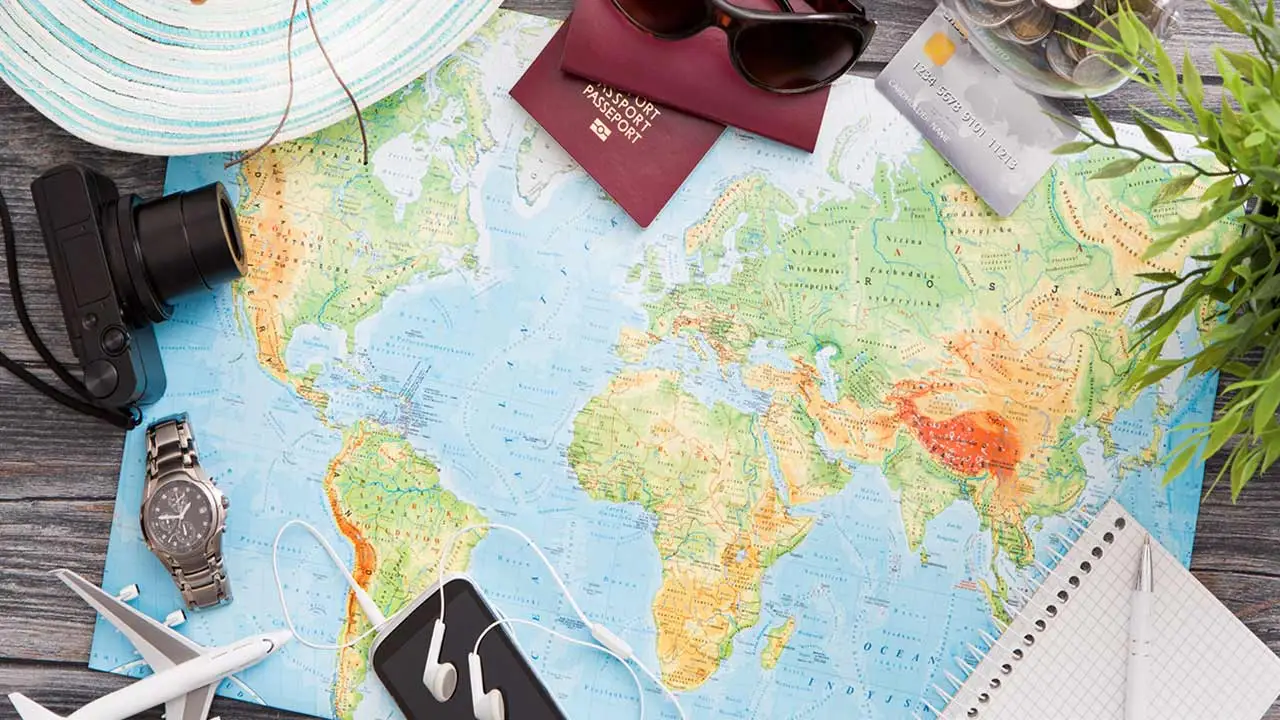As schools begin to break up and temperatures across Europe reach record highs this week, many of us are starting to think about our holiday and travel plans for the summer.
Whether you booked your trip a long time ago, or you're waiting for a last-minute spontaneous getaway, it's worth spending a few minutes thinking about your comfort and safety while travelling to ensure your trip goes smoothly.
There are a lot of detailed guides available online that cover every aspect of travel planning – the Government's own Foreign Travel Checklist is very handy resource – but when it comes to safety and security abroad there are a few practical tips and measures that you'll find in every guide:
Research and plan your trip
Before you set off, spend some time researching your destination so you know what to expect when you get there. In particular, make sure you're familiar with any local customs, laws and potential safety concerns that may be in effect in the area you're visiting.
The British government provide official travel advice for all countries on the Foreign, Commonwealth and Development Office website, and this is a great resource for finding out everything you need to know about an area before you travel including entry requirements, local laws and customs, healthcare advice and currency information.
Get insured
Comprehensive travel insurance is vital, even if you're staying in an EU country. Most travel insurance policies cover medical expenses, lost baggage and holiday cancellation as standard, but you should double-check the policy facts before you buy and make sure you're suitably covered for the correct events and amounts. For example, if your holiday cost £1000, make sure the cancellation clause in your policy covers holidays up to £1000, otherwise you may only get back a portion of what you spent if you do make a claim.
Also, don't wait until the last minute before getting insured. Most travel insurance policies have cancellation protection that will cover you if you're unable to travel for some reason, for example if you fall ill or your flight is cancelled, but you'll only benefit from this protection if the policy is live at the time. It can also be much harder to buy travel insurance for a trip that's already started.
Secure your belongings
Protect your valuables while you travel. Make sure your suitcase is study and invest in a padlock or travel lock for extra protection. Be discreet with your electronics and avoid flashing expensive items such as jewellery in public, especially in busy places like airports and markets. Make the most of your room safe if your hotel provides one and use it to store your passport and extra cash when you don't need it. Finally, don't forget to adequately insure your belongings. Most travel insurance policies will cover lost or stolen personal items; just make sure the cover amount is appropriate for your needs.
Stay connected
If you're travelling solo or in a small group, it's important to keep in touch with friends and family back home. Regularly check in with loved ones to let them know that you're safe, and share your travel plans and accommodation details with someone you trust so they know where you should be each day. Most hotels and tourist hotspots have Wifi now so it's easier than ever to stay connected, but if you're travelling to a more remote area, you could consider buying a local SIM card to ensure more reliable communication.
Blend in with the locals
It's always advisable to blend in with the locals whenever you're travelling abroad to avoid drawing unnecessary attention to yourself. Dress modestly and respect local customs, especially in conservative or religious regions. Learning a few basic phrases of the language will help you to build rapport with the locals and can be a fun cultural experience.
Use public transport wisely
Be cautious when hiring local taxis or using ridesharing services. Most public transport hubs such as airports and train stations tend to have licenced taxis parked outside, but if you're flagging down a taxi on the street or booking a ride through an app, make sure you're using a reputable company and check that the driver and their vehicle match the details on the licence or booking app. Avoid travelling alone late at night, and if you're not familiar with the language, consider asking your hotel or venue to arrange transport for you.
Back-up paper documents
Take photos of your passport, travel insurance certificate, and any other important documents and email them to yourself or save them in a secure cloud service so you can access them from anywhere in case of emergency. Only take the cash you need
Don't take all of your currency with you when you go out. Estimate how much you'll need for the day and leave the rest in your room safe or another secure place. You might also want to consider buying a money belt; they are a cheap, secure, and practical item for carrying valuables and important documents while travelling.
By following these practical tips, you can help to ensure that you'll have a safe and memorable trip for all of the right reasons. Stay vigilant, use your common sense, and enjoy your holiday!

